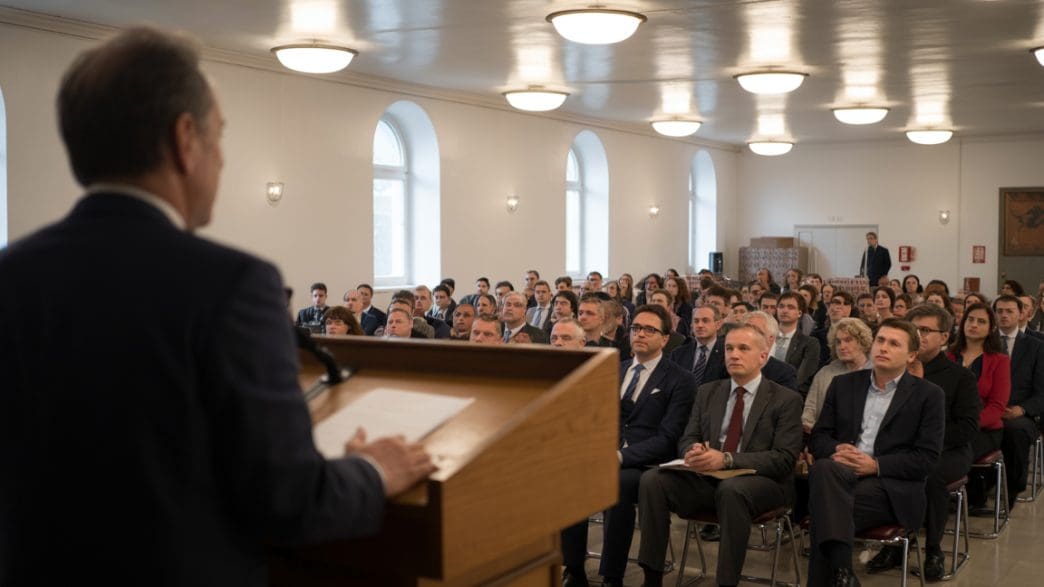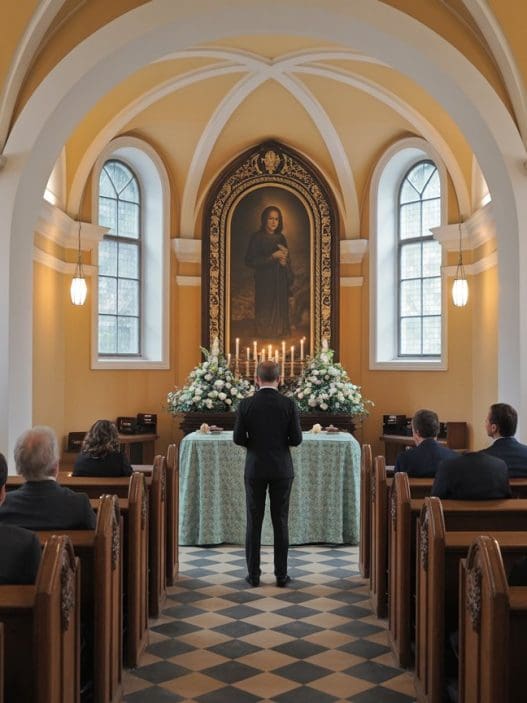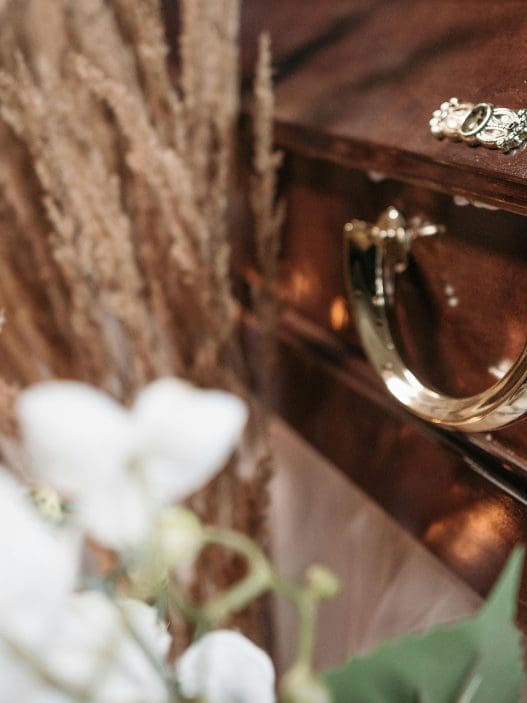Jehovah’s Witnesses maintain distinct beliefs about death, the afterlife, and religious observances that set them apart from mainstream Christian denominations. These beliefs influence how they conduct funerals, grieve for the deceased, and offer support to the bereaved. While they do hold funerals, the customs are highly specific, simple, and aligned with scriptural teachings. This article provides an in-depth look at what Jehovah’s Witness funerals entail, from theology to etiquette, burial practices, and aftercare.
Jehovah’s Witness Beliefs About Death and Resurrection
At the core of Jehovah’s Witness funeral practices is their understanding of what happens after death. This belief system is rooted in biblical interpretation rather than tradition or emotional symbolism.
Key Beliefs Include:
- Death is a state of non-existence: Jehovah’s Witnesses believe that the dead are completely unconscious, citing Ecclesiastes 9:5, which states, “the dead know nothing at all.”
- No immortal soul: They reject the idea that humans have an immortal soul that survives after the body dies.
- Hope in resurrection: Their faith is built on the promise that Jehovah God will resurrect the righteous in the future, referencing John 5:28-29 and Acts 24:15.
- Heaven is for a limited number: Only 144,000 will go to heaven, while the majority of faithful Witnesses expect to be resurrected to live forever on a paradise Earth.
These theological positions drastically shape the nature of Jehovah’s Witness funerals. Unlike many traditional Christian funerals, theirs do not involve praying for the dead, invoking saints, or imagining the soul in heaven.
Do Jehovah’s Witnesses Have Funerals?
Yes, Jehovah’s Witnesses do hold funerals, but these are very different from those in other religious or cultural traditions. The funeral is a solemn gathering with a strong emphasis on scripture, modesty, and spiritual comfort rather than grief or ceremony.
Purpose of the Funeral:
- To praise Jehovah, not to elevate the deceased
- To comfort the living with scriptural hope
- To reaffirm the resurrection belief
- To maintain dignity and avoid emotional excess
The event is never intended to be a celebration of life or a spectacle. Instead, it serves as a spiritual discourse intended to bring peace to those grieving while honoring God’s promises.
Where Do Jehovah’s Witnesses Hold Funerals?
There is no strict rule about where a Jehovah’s Witness funeral must take place. The decision is made based on local availability and the wishes of the family.
Common Locations Include:
- Kingdom Hall: Their place of worship, if available, is the most common venue.
- Funeral Home Chapel: If the Kingdom Hall is unavailable, a secular funeral home may be used.
- Graveside: In some cases, especially for smaller gatherings, the funeral is held directly at the burial site.
- Private Home: Rare but possible, especially for small memorial gatherings.
Regardless of location, religious symbols not in harmony with Jehovah’s Witness teachings (such as crucifixes or images of Jesus) are strictly avoided.
What Happens During a Jehovah’s Witness Funeral?
Jehovah’s Witness funerals follow a simple and consistent structure. A designated elder or ministerial servant, often someone who knew the deceased, gives a scriptural talk focused on the Bible’s teachings about death and the resurrection hope.
Standard Elements of the Service:
- Opening Prayer
A brief prayer opens the service, asking for Jehovah’s comfort and presence. - Scriptural Discourse
The main part of the funeral is a 30- to 45-minute Bible-based talk. It:- Emphasizes scriptures like John 11:25, Revelation 21:4, and Ecclesiastes 9:5
- Reassures attendees of the resurrection promise
- Explains the condition of the dead from a biblical standpoint
- Life Summary of the Deceased
A short biography may be included, focusing on the person’s service to Jehovah. Personal achievements or secular accomplishments are usually not highlighted. - Closing Prayer
Concludes the service by again focusing on comfort and faith. - Optional Kingdom Song
A Kingdom melody might be sung, chosen from the official songbook. These songs are based on scripture and never include secular or emotionally charged lyrics.
What is Excluded:
- No eulogies
- No open-mic sharing of memories
- No candles, crosses, or incense
- No religious rituals borrowed from other faiths
Do Jehovah’s Witnesses Allow Viewings or Wakes?
Yes, viewing the body is allowed and may occur before or after the service. However, Jehovah’s Witnesses do not hold traditional “wakes” involving group prayers, rosaries, or rituals like those found in Catholic or Orthodox traditions.
Guidelines for Viewings:
- The atmosphere should remain quiet and respectful.
- Loud mourning or expressive weeping is discouraged.
- The focus is on quiet reflection and spiritual composure.
There are no overnight vigils, chanting, or blessings performed over the body.
Do Jehovah’s Witnesses Have Cremation or Burials?
Jehovah’s Witnesses have no doctrinal objection to cremation. The Bible does not command burial or prohibit cremation, so either method is acceptable.
Key Points:
- Burial is common, but not mandatory.
- Cremation is allowed and often chosen for economic or practical reasons.
- No belief exists that cremation affects resurrection; God’s power is believed to transcend physical decomposition.
Regardless of the method, the family typically arranges a respectful and simple interment without ornate monuments or religious imagery.
Do Jehovah’s Witnesses Celebrate the Life of the Deceased?
The answer is no, at least not in the traditional sense. Jehovah’s Witnesses believe that glory should be directed to Jehovah alone. Funeral services may mention the deceased’s faith and service, but they avoid the tone of celebration or emotional indulgence.
What Is Avoided:
- No “celebration of life” terminology
- No festive gatherings
- No storytelling or humorous tributes
- No photo slideshows or video montages
The focus remains scriptural and solemn, even when the deceased is beloved or well-known within the congregation.
Jehovah’s Witness Funeral Etiquette: What to Wear and Expect
Proper etiquette is essential at a Jehovah’s Witness funeral. The expected behavior aligns with their values of modesty, respect, and scriptural focus.
Dress Code:
- Men: Dark-colored suits, ties, conservative dress shoes
- Women: Modest dresses or skirts, not overly decorative or form-fitting
- Children: Also dressed respectfully, even if informal
Avoid flamboyant outfits, bright colors, or jewelry that draws attention.
Behavioral Expectations:
- Be on time and quietly seated
- Do not film, photograph, or livestream the event
- Refrain from applause or vocal participation
- Respect the solemnity of prayers and songs
Are Non-Jehovah’s Witnesses Welcome at Funerals?
Yes, non-Witnesses are welcome to attend funerals, provided they respect the customs and maintain decorum. Jehovah’s Witnesses often use funerals as opportunities to share their beliefs with attendees who are not of their faith.
Guidelines for Non-Witness Attendees:
- You are not required to participate in prayers or hymns
- Remain silent and respectful throughout the service
- Do not expect interfaith rituals or symbols
- Dress conservatively and avoid religious paraphernalia (e.g. crosses)
Non-Witnesses are often given literature about the resurrection hope or invited to discuss scripture further, but this is done respectfully, not forcefully.
What Happens After the Service?
There is no formal post-funeral ritual required by Jehovah’s Witnesses. Families may choose to gather privately for a simple meal, but this is a personal decision rather than a spiritual expectation.
No Formal Mourning Period:
- No 40-day mourning
- No memorial anniversaries
- No yearly commemorative services
Instead, the congregation continues to support the bereaved through spiritual encouragement, prayer, and regular visits. Grief is acknowledged but managed with spiritual strength and scriptural hope.
Do Jehovah’s Witnesses Accept Flowers or Donations?
Flowers:
- Acceptable but not encouraged
- Must not include religious motifs (crosses, angels, etc.)
- Should be simple and respectful
Donations:
- Monetary contributions are not accepted at funerals
- No donation boxes, fundraising, or tributes
- Jehovah’s Witnesses are funded through voluntary, anonymous donations made at Kingdom Halls or via jw.org
Can a Funeral Be Held for a Non-Baptized Jehovah’s Witness?
It is possible, but the elders will decide based on the individual’s relationship with the congregation. If the person was studying the Bible or attending meetings regularly, a memorial talk may be arranged. However, the tone remains scriptural, not personal.
Jehovah’s Witnesses and Mourning: Is Grieving Allowed?
Grief is seen as a natural human response, even for people of strong faith. Jehovah’s Witnesses are encouraged to mourn privately but are also reminded of the resurrection hope, which acts as a source of comfort.
Coping Mechanisms Include:
- Increased personal Bible study
- Listening to comforting Kingdom songs
- Talking to elders or mature congregation members
- Avoiding isolation by attending meetings and field service
They emphasize returning to regular spiritual routines as part of the healing process.
Jehovah’s Witness Funerals Compared to Other Christian Funerals
| Feature | Jehovah’s Witnesses | Traditional Christian Funerals |
|---|---|---|
| Focus of Service | Jehovah and Scripture | Deceased individual |
| Eulogies | Not allowed | Common |
| Prayers for the Dead | Not practiced | Often included |
| Crosses and Religious Icons | Prohibited | Frequently used |
| Viewing or Wake | Quiet, simple viewing only | Often includes rituals and prayers |
| Cremation | Permitted | Varies by denomination |
| Post-Funeral Rituals | None required | Memorial dinners or repasts common |
| Accepting Donations | Never at funerals | Often collected |
| Mourning Period | None formally prescribed | Varies widely |
| Celebrating Life | Discouraged | Widely encouraged |
Jehovah’s Witnesses conduct funerals that are dignified, scripturally focused, and free of religious or emotional embellishments. Rooted in their core beliefs about death and resurrection, these services emphasize comfort through God’s Word rather than grief expression. For attendees, especially those unfamiliar with the religion, understanding these customs ensures respectful participation and a deeper appreciation of the Jehovah’s Witness worldview.
By aligning each aspect of their funeral customs with biblical principles, Jehovah’s Witnesses maintain spiritual clarity and consistency, even in times of loss.


















